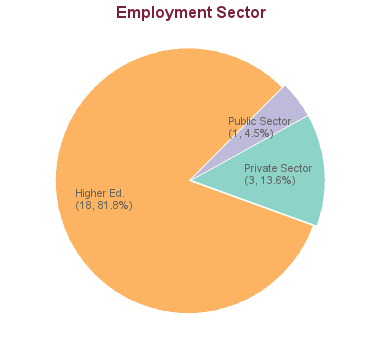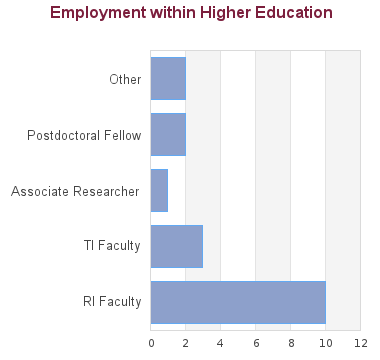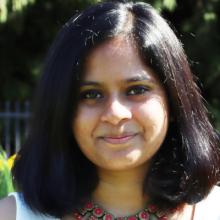Doctor of Philosophy in Planning (PhD)
Canadian Immigration Updates
Review details about the recently announced changes to study and work permits that apply to master’s and doctoral degree students. Read more
Overview
SCARP is interested in attracting students to its PhD program who are interested in topics broadly related to the transition to sustainability through the democratization of planning approaches. Under this broad umbrella, our faculty have diverse interests, ranging from sustainable transportation studies to disaster preparedness, community development and social planning, poverty alleviation at home and abroad, negotiation and mediation of land and resource conflicts, the ecological footprint, risk analysis, managing multicultural cities and regions, cross-cultural and indigenous planning, community based urban design, urbanization and its challenges in East and Southeast Asia to name just a few of our faculty's research interests. Our research approach is inherently interdisciplinary and spans qualitative and quantitative methodologies.
What makes the program unique?
We aim to foster planning scholars and practitioners who can think critically, research inventively, and communicate their ideas effectively.
SCARP's extraordinary PhD students conduct and mobilise original research with innovative approaches and lenses, and enter a broader world as planning scholars with the insights gained at UBC SCARP.
We have developed a lively PhD culture at SCARP which includes but are not limited to:
- A forum involving the Program Chair
- A lecture series, organised by students, for students to share their research in progress and gather feedback from each other
- Public celebrations by the School of your publications, community work, and awards
Quick Facts
Program Enquiries
Contact the program
Admission Information & Requirements
1) Check Eligibility
Minimum Academic Requirements
The Faculty of Graduate and Postdoctoral Studies establishes the minimum admission requirements common to all applicants, usually a minimum overall average in the B+ range (76% at UBC). The graduate program that you are applying to may have additional requirements. Please review the specific requirements for applicants with credentials from institutions in:
Each program may set higher academic minimum requirements. Please review the program website carefully to understand the program requirements. Meeting the minimum requirements does not guarantee admission as it is a competitive process.
English Language Test
Applicants from a university outside Canada in which English is not the primary language of instruction must provide results of an English language proficiency examination as part of their application. Tests must have been taken within the last 24 months at the time of submission of your application.
Minimum requirements for the two most common English language proficiency tests to apply to this program are listed below:
TOEFL: Test of English as a Foreign Language - internet-based
Overall score requirement: 100
Reading
22
Writing
21
Speaking
21
Listening
22
IELTS: International English Language Testing System
Overall score requirement: 7.0
Reading
6.5
Writing
6.5
Speaking
6.5
Listening
6.5
Other Test Scores
Some programs require additional test scores such as the Graduate Record Examination (GRE) or the Graduate Management Test (GMAT). The requirements for this program are:
The GRE is optional.
2) Meet Deadlines
3) Prepare Application
Transcripts
All applicants have to submit transcripts from all past post-secondary study. Document submission requirements depend on whether your institution of study is within Canada or outside of Canada.
Letters of Reference
A minimum of two references are required for application to graduate programs at UBC. Each graduate program determines the type of reference (e.g. academic, professional) and number of references they require which can range from 2 to 4. References should be requested from individuals who are prepared to provide a report on your qualifications for the program.
Statement of Interest
Many programs require a statement of interest, sometimes called a "statement of intent", "description of research interests" or something similar.
Supervision
Students in research-based programs usually require a faculty member to function as their thesis supervisor. Please follow the instructions provided by each program whether applicants should contact faculty members.
Instructions regarding thesis supervisor contact for Doctor of Philosophy in Planning (PhD)
Citizenship Verification
Permanent Residents of Canada must provide a clear photocopy of both sides of the Permanent Resident card.
4) Apply Online
All applicants must complete an online application form and pay the application fee to be considered for admission to UBC.
Tuition & Financial Support
Tuition
| Fees | Canadian Citizen / Permanent Resident / Refugee / Diplomat | International |
|---|---|---|
| Application Fee | $116.25 | $168.25 |
| Tuition * | ||
| Installments per year | 3 | 3 |
| Tuition per installment | $1,875.34 | $3,294.66 |
| Tuition per year (plus annual increase, usually 2%-5%) | $5,626.02 | $9,883.98 |
| Int. Tuition Award (ITA) per year (if eligible) | $3,200.00 (-) | |
| Other Fees and Costs | ||
| Student Fees (yearly) | $1,144.10 (approx.) | |
| Costs of living | Estimate your costs of living with our interactive tool in order to start developing a financial plan for your graduate studies. | |
All fees for the year are subject to adjustment and UBC reserves the right to change any fees without notice at any time, including tuition and student fees. Tuition fees are reviewed annually by the UBC Board of Governors. In recent years, tuition increases have been 2% for continuing domestic students and between 2% and 5% for continuing international students. New students may see higher increases in tuition. Admitted students who defer their admission are subject to the potentially higher tuition fees for incoming students effective at the later program start date. In case of a discrepancy between this webpage and the UBC Calendar, the UBC Calendar entry will be held to be correct.
Financial Support
Applicants to UBC have access to a variety of funding options, including merit-based (i.e. based on your academic performance) and need-based (i.e. based on your financial situation) opportunities.
Program Funding Packages
From September 2024 all full-time students in UBC-Vancouver PhD programs will be provided with a funding package of at least $24,000 for each of the first four years of their PhD. The funding package may consist of any combination of internal or external awards, teaching-related work, research assistantships, and graduate academic assistantships. Please note that many graduate programs provide funding packages that are substantially greater than $24,000 per year. Please check with your prospective graduate program for specific details of the funding provided to its PhD students.
Funding Statistics
This results in a net balance (any funding provided to the student minus tuition and fees) mean of $54,255 and median of $61,532.
- 3 students received Teaching Assistantships. Median TA funding based on 3 students was $9,878.
- 5 students received Research Assistantships. Median RA funding based on 5 students was $18,000.
- 3 students received Academic Assistantships. Median AA funding based on 3 students was $6,972.
- 8 students received internal awards. Median internal award funding based on 8 students was $25,434.
- 4 students received external awards. Median external award funding based on 4 students was $35,500.
Review methodology
Scholarships & awards (merit-based funding)
All applicants are encouraged to review the awards listing to identify potential opportunities to fund their graduate education. The database lists merit-based scholarships and awards and allows for filtering by various criteria, such as domestic vs. international or degree level.
Graduate Research Assistantships (GRA)
Many professors are able to provide Research Assistantships (GRA) from their research grants to support full-time graduate students studying under their supervision. The duties constitute part of the student's graduate degree requirements. A Graduate Research Assistantship is considered a form of fellowship for a period of graduate study and is therefore not covered by a collective agreement. Stipends vary widely, and are dependent on the field of study and the type of research grant from which the assistantship is being funded.
Graduate Teaching Assistantships (GTA)
Graduate programs may have Teaching Assistantships available for registered full-time graduate students. Full teaching assistantships involve 12 hours work per week in preparation, lecturing, or laboratory instruction although many graduate programs offer partial TA appointments at less than 12 hours per week. Teaching assistantship rates are set by collective bargaining between the University and the Teaching Assistants' Union.
Graduate Academic Assistantships (GAA)
Academic Assistantships are employment opportunities to perform work that is relevant to the university or to an individual faculty member, but not to support the student’s graduate research and thesis. Wages are considered regular earnings and when paid monthly, include vacation pay.
Financial aid (need-based funding)
Canadian and US applicants may qualify for governmental loans to finance their studies. Please review eligibility and types of loans.
All students may be able to access private sector or bank loans.
Foreign government scholarships
Many foreign governments provide support to their citizens in pursuing education abroad. International applicants should check the various governmental resources in their home country, such as the Department of Education, for available scholarships.
Working while studying
The possibility to pursue work to supplement income may depend on the demands the program has on students. It should be carefully weighed if work leads to prolonged program durations or whether work placements can be meaningfully embedded into a program.
International students enrolled as full-time students with a valid study permit can work on campus for unlimited hours and work off-campus for no more than 24 hours a week during academic sessions.
A good starting point to explore student jobs is the UBC Work Learn program or a Co-Op placement.
Tax credits and RRSP withdrawals
Students with taxable income in Canada may be able to claim federal or provincial tax credits.
Canadian residents with RRSP accounts may be able to use the Lifelong Learning Plan (LLP) which allows students to withdraw amounts from their registered retirement savings plan (RRSPs) to finance full-time training or education for themselves or their partner.
Please review Filing taxes in Canada on the student services website for more information.
Cost Estimator
Applicants have access to the cost estimator to develop a financial plan that takes into account various income sources and expenses.
Career Outcomes
22 students graduated between 2005 and 2013. Of these, career information was obtained for 22 alumni (based on research conducted between Feb-May 2016):


RI (Research-Intensive) Faculty: typically tenure-track faculty positions (equivalent of the North American Assistant Professor, Associate Professor, and Professor positions) in PhD-granting institutions
TI (Teaching-Intensive) Faculty: typically full-time faculty positions in colleges or in institutions not granting PhDs, and teaching faculty at PhD-granting institutions
Term Faculty: faculty in term appointments (e.g. sessional lecturers, visiting assistant professors, etc.)
Sample Employers in Higher Education
University of British Columbia (3)University of Glasgow
Ben-Gurion University of the Nagev
University of Toronto
University of Manitoba
British Columbia Institute of Technology
Brandon University
Xi'an Jiaotong-Liverpool University
Purdue University
Universite de Montreal
Sample Employers Outside Higher Education
United Nations - Development ProgrammeSample Job Titles Outside Higher Education
Research ConsultantPrincipal
PhD Career Outcome Survey
You may view the full report on career outcomes of UBC PhD graduates on outcomes.grad.ubc.ca.Disclaimer
These data represent historical employment information and do not guarantee future employment prospects for graduates of this program. They are for informational purposes only. Data were collected through either alumni surveys or internet research.Enrolment, Duration & Other Stats
These statistics show data for the Doctor of Philosophy in Planning (PhD). Data are separated for each degree program combination. You may view data for other degree options in the respective program profile.
ENROLMENT DATA
| 2023 | 2022 | 2021 | 2020 | 2019 | |
|---|---|---|---|---|---|
| New Enrolment | 2 | 2 | 4 | 1 | 3 |
| Total Enrolment | 19 | 22 | 23 | 22 | 23 |
Completion Rates & Times
Disclaimer
Upcoming Doctoral Exams
Thursday, 17 July 2025 - 12:30pm - 240, West Mall Annex (WMAX), 1933 West Mall
Thursday, 21 August 2025 - 2:00pm - 240, West Mall Annex (WMAX), 1933 West Mall
Research Supervisors
Supervision
Students in research-based programs usually require a faculty member to function as their thesis supervisor. Please follow the instructions provided by each program whether applicants should contact faculty members.
Instructions regarding thesis supervisor contact for Doctor of Philosophy in Planning (PhD)
Doctoral Citations
| Year | Citation |
|---|---|
| 2013 | Dr. Church studied human dimensions of urban nature. Her results suggest that rather than simply adding nature to the city, planners should consider how residents interact with and access nature, their ability to personalize space, and how they find solitude in those spaces. These results are important in the face of urbanization and city densification. |
| 2013 | Dr. Panjwani explored community recovery across five villages impacted by the 2004 Indian Ocean tsunami in Aceh, Indonesia. Her study reveals the nuances of resettlement after disaster and the role of place-based and built environment mechanisms on wellbeing outcomes. Findings support the development of effective strategies for disaster recovery. |
| 2013 | Dr. Erfan explored the healing potential of the planning profession while working with a small Indigenous community on Vancouver Island. Her dissertation, written largely as autobiographical fiction, tells the stories of her action research engagement, and proposes a path forward for a therapeutic orientation to planning. |
| 2013 | Dr. Moore refined a method for analyzing the urban ecological footprint. She estimated the reduction in energy and materials consumption needed to help achieve Vancouver's goal of becoming the Greenest City, and suggested planning policies to achieve the goal. The City used Dr. Moore's research to inform its Greenest City 2020 Action Plan. |
| 2013 | Dr. White's research focussed on Toronto's waterfront, and he asked: "'How do planning processes affect the quality and execution of urban design?' Findings showed that innovative policies and regulations were established to achieve design excellence despite a weak jurisdictional context. |
| 2012 | Dr. Sussmann assessed the planning process and sustainability outcomes of Vancouver's Southeast False Creek neighbourhood. Her study highlights the need for scientifically credible measures of sustainability in urban planning. She also shows how sustainability perspectives of central actors in a planning process influence its outcomes. |
| 2012 | Dr. Silvia Vilches explored the consequences of the 2002 welfare reforms in BC for lone mothers by studying the everyday experiences of the women themselves. Her findings show deepening class and gender divisions and contribute to the global effort to understand how social citizenship is being reshaped through welfare reforms. |
| 2011 | Dr. Labbe examined the transformation of a rural village into an urban neighbourhood on the edge of Hanoi, Vietnam. She found that local people and government officials mitigate official policies through their day-to-day practices and interactions. This research illuminates the relational aspect of planning in a city of the Global South. |
| 2011 | Dr. Thomas examined the housing and transportation choices of Filipino immigrants in Toronto. The study illustrates the resiliency of Filipinos' choices throughout decades of structural changes in housing policy, immigration policy, transportation infrastructure, and the labour market. |
| 2011 | Dr. Shieh studied neighbourhood-based governance in China. As cities wrestle with pressing social issues, her work shows how the grass roots organize themselves and how they are regulated by the state. Her research contributes to the broader planning discourse on the role of community building in the governance of an urbanizing society. |
Pages
Sample Thesis Submissions
Further Information
Specialization
Planning emphasizes an integrated approach that encompasses urban policy and community development, international development, environmental and natural resources, urban design, and planning processes and methods.
Program Website
Faculty Overview
Academic Unit
Program Identifier
Classification
Program Enquiries
Contact the program
Departments/Programs may update graduate degree program details through the Faculty & Staff portal. To update contact details for application inquiries, please use this form.

The city and the sea
Take a break from studying with opportunities at your fingertips. Whether you want to settle down in a café or take your research outdoors, we have a place for you.
